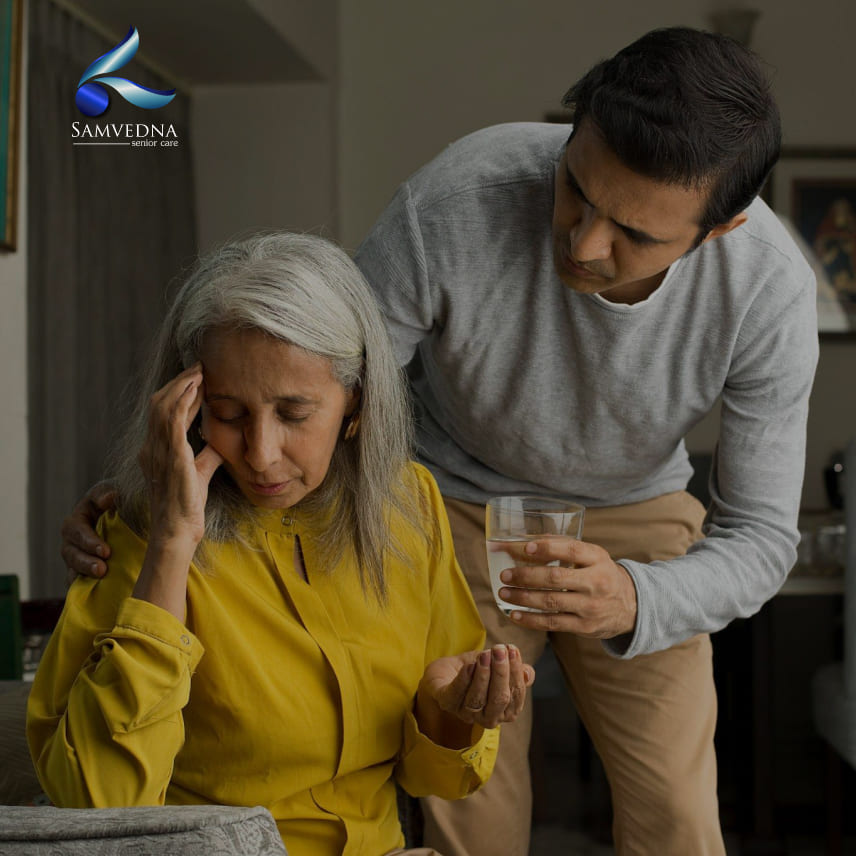Contact Us




Everyone may get somatic symptoms from time to time. Have you ever noticed how quickly your heart beats when you’re scared? When you’re angry, you clench your teeth or tense your muscles. Blood rushes to your face when you’re embarrassed. These are all part of somatization, which occurs when emotional distress manifests as physical sensations.
For example, a person who has just lost a loved one may somaticize their grief through severe fatigue or bodily pains and aches or even itchy skin. Here, the prefix “soma” stems from the Greek word for body. Joint pain to brief vision loss are examples of somatic complaints. Somatic symptoms are quite real, despite the fact that there is no physical explanation for them. Somatization is a symptom, not a diagnosis in and of itself. It is often part of somatic symptom disorder and conversion disorder, though it can appear with other conditions as well. People experiencing somatization must seek treatment from a trained mental health therapist.
WHAT IS A PSYCHOSOMATIC DISORDER?
A psychosomatic disorder occurs when the person’s physical symptoms appear to be persistent, and it may indicate that they are dealing with something pervasive and difficult in their life that isn’t going away. Stomach aches, rapid heart rate, clammy palms, difficulty in respiration and/or psychosomatic illnesses, are usually caused by medium to high levels of stress, anxiety, depression or any other mental illness. It is, in essence, a mind-body phenomenon, but it is also a little more sophisticated than that.
WHAT CAUSES PSYCHOSOMATIC SYMPTOMS AND MENTAL ILLNESS?
The exact cause of somatic symptom disorder is unknown, but any of the following factors could be involved:
• Genetic and biological factors, such as increased pain sensitivity, etc.
• Negativity is a personality trait that can influence how a person identifies and perceives the illness and bodily symptoms.
• Lack of awareness of difficulty processing emotions, or even causing physical symptoms to take precedence over emotional issues.
• Learned behavior, such as the attention or other advantages gained from having an illness; or “pain behaviors” in response to symptoms, such as excessive avoidance of activity.
WHAT SYMPTOMS AND INDICATORS CHARACTERIZE PSYCHOSOMATIC ILLNESSES?
The signs and symptoms of psychosomatic illnesses can vary from aches and pains, fatigue, insomnia, indigestion, migraine, and erectile dysfunction to many more. Regardless of the symptoms, the person may have excessive thoughts, feelings, or behaviors related to those symptoms, which can cause significant problems and might make it difficult for them to function optimally. It can sometimes be disabling as well.
Among these thoughts, feelings, and behaviors are:
• Constant concern about possible illness
• Normal physical sensations are interpreted as a sign of severe physical illnesses
• Fear of serious symptoms, even when there is no evidence
• Believing that physical sensations are dangerous
• Feeling that medical evaluation and treatment have been insufficient
• Concerned that physical activity will harm your body
• Checking your body for abnormalities on a regular basis
HOW CAN I DETERMINE WHETHER MY SYMPTOMS ARE PSYCHOSOMATIC?
People who experience physical symptoms with no apparent medical basis and that seem to be influenced by their emotional state are said to have psychosomatic illnesses. To rule out the physical or mental illness, the doctor may order certain diagnostic tests. If nothing concrete is discovered, the person may be suffering from a psychosomatic illness. It is critical to receive this diagnosis during the early stage of the illness. It is required that the treatment begins and progress can be noted.
TAKING CARE OF A LOVED ONE
It can be difficult to accept that a life-threatening illness has been ruled out as the cause of physical symptoms, considered to be somatic symptom disorder. Symptoms cause significant distress for the individual, and reassurance isn’t always helpful. Encourage your loved one to consider seeking mental health treatment to learn how to cope with the reaction to symptoms and any disability it may cause. If you are feeling overwhelmed by your role as a caregiver, you should seek the advice of a mental health therapist to address your own needs.
WHAT TREATMENTS ARE USED FOR PSYCHOSOMATIC PAIN AND OTHER SOMATIC SYMPTOMS?
Several treatments can help people with somatic symptoms, including:
• Psychotherapeutic Intervention
• Medications, such as antidepressants
• Mindfulness-based therapy
• Referral to a mental health therapist or a mental health professional (for example, a psychiatrist or psychologist)
• Regular contact with your primary care provider
Lifestyle and home remedies, like practicing stress management and relaxation techniques, getting involved in physical activities, participating in social and family activities and even avoiding intake of alcohol and recreational drugs helps.
We at Samvedna Care, provide scrupulous safe spaces for young and older adults in the form of our service and provide new approaches to reduce gaps and treat mental illnesses. Samvedna Care hopes to destigmatize and demystify mental health in the Indian context and promote a healthy lifestyle through various intervention techniques, such as lifestyle counselling etc.